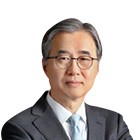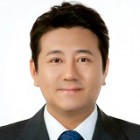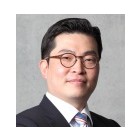Video
Events
Recent Events
US-ROK-Japan Extended Deterrence Trilateral
- Expert
- Choi Kang
- Hit
- 903
- Date
- 13-09-02 15:00
US-ROK-Japan Extended Deterrence Trilateral
Hosted by: Pacific Forum CSIS and the Asan Institute for Policy Studies
Date: September 2-3, 2013
Place: Conference Room (2F), The Asan Institute for Policy Studies
AGENDA
Monday, September 2
Session I: Strategic Perspectives and Extended Deterrence
The three countries compare and contrast perspectives on regional security threats and challenges, with special attention to the role of US extended deterrence. What distinguishes these threats from other security challenges? What are the important trends or factors that influence the salience of these threats? What is the role of deterrence by denial and deterrence by punishment for addressing these threats and what role does the US nuclear arsenal play versus other non-nuclear assets like missile defense, conventional forces, etc.? How should we apportion our range of resources to these specific challenges? How should we discuss or frame these challenges to ensure they get the attention they deserve without inflating them or provoking other countries?
Session 2: Views of China and the balance of power in the Asia Pacific
How does each country see the balance of power in Asia? Is it changing? If so, how and why (i.e, what is driving that shift)? What is the impact of that shift? How does a shift impact US extended deterrence commitments and the role of nuclear weapons? How does each country evaluate PLA military modernization efforts (e.g. nuclear forces, submarines, etc.)?
Session 3: Views of North Korea
How does each country characterize the North Korean threat? What is the role of deterrence? What specific scenarios is each country trying to deter and what are they doing? What does each government expect the other two to contribute to deterrence and what is expected when deterrence fails? At what level does North Korea become a threat that engages the US extended deterrent and at what point should the US nuclear arsenal come into play?
Session 4: Changes in national defense postures and status of reforms
What is the status of defense postures and programs, especially given the new governments in Tokyo and Seoul? What is each government planning to do? How will those changes impact the extended deterrent? To what degree does the extended deterrent shape Japanese and ROK plans? What is the status of the rebalance and the Obama administration’s plans to try to continue to reduce nuclear weapons on the extended deterrent? How can these policies best be used to strengthen extended deterrence?
Tuesday, September 3
Session 5: Reassurance and extended deterrence
How can the US reassure the ROK and Japan regarding the viability and credibility of its extended deterrent? What does each government want Washington to do? Is there anything in particular that would be troubling to these governments? What should the US NOT do? Are there nonmilitary ways the US can reassure its allies of the durability of its extended deterrent and its commitment to their defense?
Session 6: Opportunities for trilateral relations that increase extended deterrence
What can the three governments do together to shore up extended deterrence in East Asia? When can they cooperate in the region in a meaningful way? Can each government see ways that the other two countries can cooperate to increase extended deterrence? Are there things they should not do?
Session 7: Next steps
What should the three countries do to strengthen regional stability and deterrence? How can this dialogue contribute to that process?

Choi Kang
President
Dr. CHOI Kang is the President at the Asan Institute for Policy Studies. Previously, he was the dean of Planning and Assessment at the Korean National Diplomatic Academy. In 2012, Dr. Choi served as the president at the Institute of Foreign Affairs and National Security (IFANS). He was also a professor and director general for American Studies at IFANS, a research fellow at the Korea Institute for Defense Analyses, and senior director for Policy Planning and Coordination on the National Security Council Secretariat. He holds several advisory board memberships including: the Committee on Foreign Affairs, Trade, and Unification of the National Assembly; Ministry of National Defense; Ministry of Unification; Air Force Development Committee; and the National Unification Advisory Council. Dr. Choi was also a South Korean delegate to the Four-Party Talks. He writes extensively on the ROK-US alliance, North Korean military affairs, inter-Korean relations, crisis management, and multilateral security cooperation. Dr. Choi received his B.A. from Kyunghee University, M.A. from the University of Wisconsin-Madison, and his Ph.D. in political science from Ohio State University.
view more
Kim Hankwon
Director and Research Fellow
Dr. KIM Hankwon is a research fellow in the China Policy Program and the director of the Center for Regional Studies at the Asan Institute for Policy Studies. Previously, Dr. Kim was a visiting professor in the Center for Chinese Studies at the Korean National Diplomatic Academy, a research fellow at the Institute of International Strategy and Development at Tsinghua University, and a research scholar at the School of International Studies at Peking University. Dr. Kim’s research focuses on Chinese foreign policy and nationalism as well as Sino-North Korean economic relations. His recent publications include “The Multilateral Economic Cooperation for Tumen River Area and China’s Leadership,” The Korean Journal of International Relations (2010) and “China’s Strategic Response to the Kim Jong-un Regime,” IFANS Focus (2012). Dr. Kim received a B.A. and M.P.A. (Master of Public Affairs) from the University of Connecticut at Storrs, and his Ph.D. in international relations from American University. Dr. Kim also completed a post-doctoral program at Tsinghua University.

Woo Jung-Yeop
Research Fellow
Dr. Woo Jung-Yeop is a research fellow at the Asan Institute for Policy Studies. Previously, Dr. Woo was a Postdoctoral Fellow at the Korean Studies Institute at the University of Southern California and also an Associate Analyst for Gallup Korea and the Korea Research Company. Dr. Woo’s research focuses on foreign military intervention in civil wars and the relationship between foreign policy-making and public opinion. Dr. Woo received a B.A. from Seoul National University, M.P.P. from Georgetown University, and his Ph.D. in political science from the University of Wisconsin-Milwaukee.



